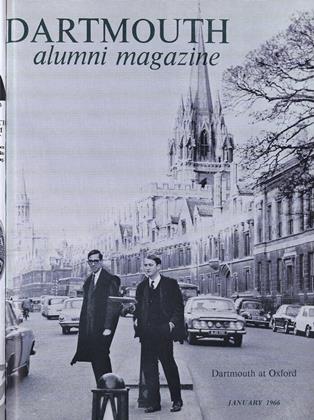By Prof. Robert GramsHunter (English). New York: ColumbiaUniversity Press, 1965 . 272 pp. $7.50.
"In learning to read well," W. H. Auden observes, "scholarship, valuable as it is, is less important than instinct." Prof. Robert Hunter's Shakespeare and the Comedy ofForgiveness is a work of meticulous scholarship; even better, it is charged and animated by the instinct of a critic.
The book's thesis is strongly persuasive. Discovering in the miracle and morality plays of the 14th and 15th Centuries a recurrent plot pattern which involves the protagonist in a sequence of sin, remorse, and forgiveness, Professor Hunter identifies therein the beginnings of a comic tradition. He traces its development through such 16th Century plays as Garter's GodlyeSusanna, Whetstone's Promos and Cassandra, and Greene's Orlando Furioso and James IV, plays in which the originally Christian materials are secularized, and establishes it finally as tributary to Shakespeare's comic achievement.
Professor Hunter then applies this discovery in a series of fresh readings of six of Shakespeare's plays, Much Ado AboutNothing, All's Well That Ends Well, Cymbeline, The Winter's Tale, Measure forMeasure, and The Tempest. These essays, which constitute the main body of his book, contain criticism of a very high order, showing us each play reilluminated, increasing our understanding, and newly charming us. In the case of two of the plays, All's Well and Cymbeline, Professor Hunter's discussions seem to me, quite simply, the best that modern criticism has to offer.
Certainly no one before him has seen Bertram and Posthumus, the dubious heroes of these two plays, so clearly. He identifies them for us as humanum genus figures, relatives of ours. One of his finest perceptions is that, in dealing with such men, the comedy of forgiveness involves its audience in the pattern of its denouement.
The forgiveness of the offenders by the offended is all that is needed. But if we in the audience are to participate in that felicity, we must also participate vicariously in the means to it. We must pardon the offenders. If we cannot, the play does not, for us, end happily, and we are denied the comic experience.
This is but one example of the way Professor Hunter redefines our relationship to the plays.
This book, a winner of Columbia's Ansley Award, comes, dark-clad and overpriced, from a university press. This is rather a pity, for probably some readers, assuming it to be another example of the strained and joyless pedantry they have come to expect from university presses, will at their cost avoid it. Let me clear it of any guilt by association. It is a graceful and witty book, written with relish, and feelingly. At times, in its passages of deepest insight, it is moving and eloquent. It is a pleasure to read because it was so obviously a pleasure to write.
Professor of English
 View Full Issue
View Full Issue
More From This Issue
-
 Feature
FeatureThey Do Things Differently at Oxford
January 1966 By JOHN H. QUITTER '63 -
 Feature
FeatureDid Webster Really Say It?
January 1966 By JOHN HURD '21 -
 Feature
FeatureThe HIGH COST of Running a College
January 1966 -
 Feature
FeaturePublic Officials In Residence
January 1966 -
 Article
ArticleThe Undergraduate Chair
January 1966 By LARRY GEIGER '66 -
 Article
ArticleWith the Big Green Teams
January 1966
JOHN FINCH
-
 Books
BooksSOME FACES IN THE CROWD.
June 1953 By JOHN FINCH -
 Books
BooksNOT FAR FROM THE JUNGLE.
January 1957 By JOHN FINCH -
 Books
BooksA FRIEND IN POWER.
July 1958 By JOHN FINCH -
 Books
BooksSCENERY FOR THE THEATRE: THE ORGANIZATION, PROCESSES, MATERIALS AND TECHNIQUES USED TO SET THE STAGE.
MAY 1972 By JOHN FINCH -
 Books
BooksCREATIVE PLAY DIRECTION.
November 1974 By JOHN FINCH -
 Article
ArticleThe Valedictories
JUNE 1977 By JOHN FINCH
Books
-
 Books
BooksAlumni Articles
MARCH 1973 -
 Books
BooksTRANSACTIONS: THE INTERPLAY BETWEEN INDIVIDUAL, FAMILY, AND SOCIETY.
JUNE 1972 By MARTIN D. MERRY, M.D -
 Books
BooksShelf Life
Mar/Apr 2004 By Matthew Feinstein '04 -
 Books
BooksProfligate Father, Square Son
April 1976 By ROBERT H. ROSS '38 -
 Books
BooksFACULTY PUBLICATIONS
June, 1922 By W. H. WOOD -
 Books
BooksBecoming Parents
JUNE 1982 By Waldo L. Fielding M.D. '43


